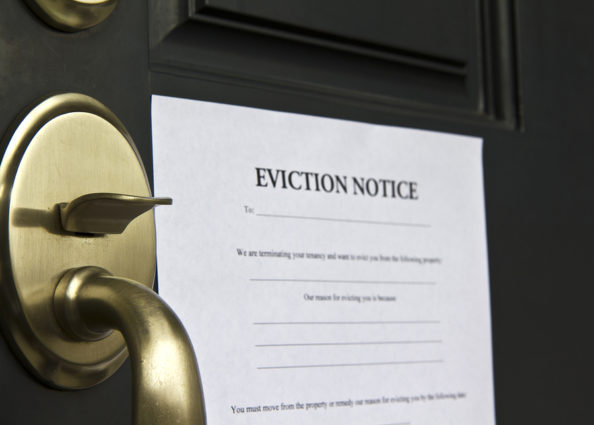Whether you’re a landlord or a tenant in North Carolina, it’s a good idea to know the eviction laws. Ultimately, the information could help you save money and a whole lot of aggravation.
The rules and regulations can vary from municipality to municipality, but here’s a rundown of the North Carolina state laws regarding eviction.
Reasons a Landlord Can Evict a Tenant in North Carolina
First things first, what are the legal reasons a landlord can evict a tenant? Evictions generally fall into one of four categories:
● Non-payment or failure to pay the rent in full.
● Failure to vacate the property after the lease term is up. (Landlord must give a termination notice 2-30 days prior to the end of the lease.)
● Criminal activity or drug trafficking on the premises.
● Breaking material terms of the lease – unauthorized person living in the home, compromising the safety of the property, etc.
The last point is an important one. Landlords can’t just evict a tenant if they don’t follow the lease to a T. For example, if the tenant makes the monthly payment a few days late, it isn’t grounds for eviction.
When a North Carolina Landlord Can’t Evict a Tenant
Tenants can breathe a little easier knowing that a landlord must have a substantial reason for an eviction. As long as you hold up your part of the lease, there’s little a landlord can do to boot your before the agreed upon term is up.
Landlords in North Carolina definitely can’t evict a tenant for:
● Complaining about the condition of the property.
● Requesting that repairs be made.
● Their sex, religion, race, family status, age, marital status, national origin or a disability.
Another important point is false accusations. If a tenant is falsely accused of breaking the lease or criminal activity they can make a defense during an eviction hearing.
The North Carolina Eviction Process
Landlords in North Carolina must follow a specific eviction process. They must:
● Provide a North Carolina eviction notice for nonpayment. You must give 10 days notice if non-payment is the issue. The notice must inform the tenant that they have 10 days to pay the amount owed or legal actions will be taken to initiate eviction.
● Check the lease to see if there are any specifications for how the notice should be delivered. Landlords must also uphold grace periods for payments before sending a notice.
● Serve a demand for material violations. The written demand must simply be given in advance and notify the tenant the lease is being terminated due to a major breach.
● Obtain a court order to evict the tenant. If this step is skipped then the eviction will likely be considered self-eviction, which is illegal in the state.
● Notify the police of criminal activity. If tenants commit criminal activity at the property the eviction process can be expedited. Landlords must file a complaint and a court date will be set within 30 days.
● File a Summons and Complaint in Summary Ejectment if the tenant refuses to leave. If a tenant refuses to vacate and fails to remedy the issue, the landlord can file a Summons and Complaint in Summary Ejectment, which is served by the Sheriff’s department. The summons will list the eviction hearing date and location.
● Obtain a Writ of Execution. If the landlord wins the eviction hearing the tenant has 10 days to vacate or appeal the decision. During this period and the appeals process the tenant must post a rent bond and pay additional rent. Once the 10 days is up the landlord can get a Writ of Execution that establishes the tenant must vacate. The writ must be delivered two or more days prior to the eviction or five days prior if sent by mail.
Landlords have to be careful not to make any move towards eviction before the court order is obtained. This includes threatening to evict the tenant and denying access to the property.
Forfeiture Lease Clauses
One caveat that could come into play is a forfeiture lease clause. If the lease states that there will be an automatic forfeiture of the property due to nonpayment for a specified period the tenant will have to comply. Furthermore, the forfeiture clause overrides standard procedures for evictions in North Carolina.
If it’s time to move on to greener pastures, the team at Square Cow Movers can make the process less stressful. We can also help landlords move items into storage during the eviction process. Start today by giving us a call or using the online form to get an instant moving quote.
Original Source: https://squarecowmovers.com/state-laws-eviction-north-carolina/

